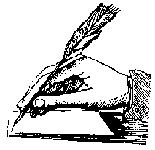February 28, 2013 --
Up to now, mention President Coolidge and you might get this jibe: "Why he wasn't even president when he was president." That is from "Kris Kringle," in the movie "Miracle on 34th Street." Or something like this: "He is a bleak omen from the past." That is the concluding line of Jacob Heilbrunn's revew of Coolidge, by Amith Shlaes, in the February 17 issue of "The New York Times Book Review."
LPR has read the Coolidge Inaugural Address, March 4, 1925 and believes, as the publication of Ms. Shales biography suggests, that it is time to take President Coolidge seriously. Is Coolidge more relevant to a conservative revival in 2014 than, say, political maneuvering of Karl Rove? Please see the following quotations from that address, given March 4, 1925. LPR asks, respectfully, that the Republican House leadership and the nation's Republican governors take particular note.
"There is no salvation in a narrow and bigoted partisanship. But if there is to be responsible party government, the party label must be something more than a mere device for securing office. Unless those who are elected under the same party designation are willing to assume sufficient responsibility and exhibit sufficient loyalty and coherence, so that they can cooperate with each other in the support of the broad general principle of the party platform, the election is merely a mockery, no decision is made at the polls, and there is no representation of the popular will. Common honesty and good faith with the people who support a party at the polls require that party, when it enters office, to assume the control of that portion of the government to which it has been elected. Any other course is bad faith and a violation of the party pledges."
"The resources of this country are almost beyond computation. No mind can comprehend them. But the cost of our combined governments is likewise almost beyond definition. Not only those who are making their tax returns, but those who meet the enhanced cost of existence in their monthly bills, know by hard experience what this great burden is and what it does.
No matter what others may want, these people want a drastic economy. They are opposed to waste. They know that extravagance lengthens hours and diminishes the rewards of their labor. I favor the policy of econonmy, not because I wish to save money, but because I wish to save people. The men and women of this country who toil are the ones who bear the cost of the government. Every dollar that we carelessly waste means that their life will be so much the more meager. Every dollar that we prudently save means that their life will be so much the more abundant. Economy is idealism in its most practical form."
"The method of raising revenue ought not to impede the transaction of business; it ought to encourage it. I am opposed to extrremely high rates, because they produce little or no revenue, because they are bad for the country, and, finally, because trhey are wrong. We cannot finance the country, we cannot improve social conditions, through any system oif injustice, even if we attempt to inflict it upon the rich."
|
"Those who suffer the most harm will be the poor. This country believes in prosperity. It is absurd to suppose that it is envious of those who are already prosperous. The wise and correct course to follow in taxation and all other economic legislation is not to destroy those who have already secured success but to create conditions...."
"These questions involve moral issues. We need not concern ourselves much about the rights of property if we will faithfully observe the rights of persons. Under our institutions their rights are supreme. It is not property but the right to hold property, both great and small, which our Constitution guarantees. All owners of property are charged with a service. These rights and duties have been revealed, through the conscience of society, to have a divine sanction. The very stability of our society rests upon production and conservation. For individuals or for governments to waste and squander their resources is to deny these rights and disregard these obligations, The result of economic dissipation to a nation is always moral decay."
"We are not without our problems, but our most important problem is not to secure new advantages but to maintain those which we already possess. Our system of government made up of three separate and independent departments, our divided sovereignty composed of nation and state, the matchless wisdom that is enshrined in our Constitution, all these need constant effort and tireless vigilance for their protection and support."
Mark those words well, Republicans; the elements of our governing system require "constant effort and tireless vigilance for their protection and support." One need go no further than the editorial and op-ed pages of The New York Times for evidence that the left regards the Constitution with scorn, and is impatient to scuttle it. One need consider no more than the president's goal of transforming our country to appreciate that our founding legacy is under attack and, to survive, needs the people's "constant effort and tireless vigilance." President Coolidge, speaking 88 years ago, predicted the result should our founding legacy be shattered: "Those who disregard the rules of society are not exhibiting a superior intelligence, are not promoting freedom and independence, are not following the path of civilization, but are displayting the traits of ignorance, of servitude, of savagery, and treading the way that leads back to the jungle."
Republicans, take seriously the words of Calvin Coolidge; you have nothing to lose but your thralldom to FDRism. (Quotations from the Coolidge Inaugural Address, March 4, 1925, taken from the text published in "Fellow Citizens," Penguin Paperback, pp. 309-317).

|
|





